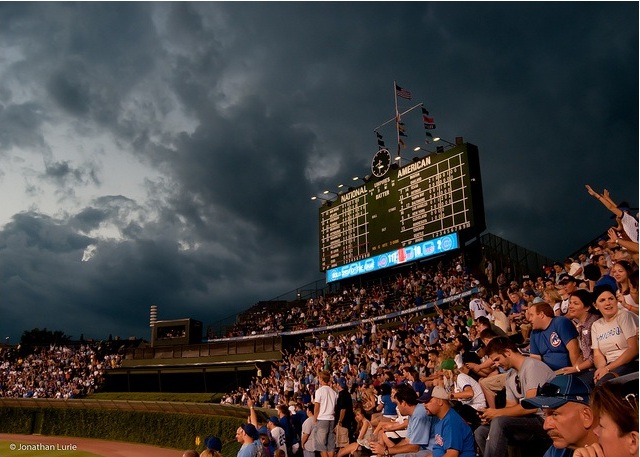Cubs Implementing "Dynamic Pricing" For Bleacher Seats
By Chuck Sudo in News on Feb 20, 2012 7:20PM
Pitchers and catchers have already reported to spring training, which means tickets to Cubs and White Sox games will be available in short order. If you're looking to buy tickets to the Wrigley Field bleachers, study the schedule long and hard if you're on a budget.
The Chicago National League Ballclub is implementing a plan called "dynamic pricing" for bleacher seats this season as a plan to fight back against brokers reselling tickets to high-demand games at a premium.
Dynamic pricing works on the principle of supply and demand: if tickets to see the World Champion Cardinals are more valuable to the buyer than tickets to see the Padres, then Cardinals tickets will cost more. According to Cubs' vice president of ticket sales and service Colin Faulkner, the sliding scale for the Wrigley bleachers will range anywhere between $17 to $78.
And, much like ticket brokers, those prices can change on a day-to-day basis. Until recently, all 30 MLB teams set their prices before the season started, with pricing determined by what team is visiting a certain ballpark. With dynamic pricing, a team can raise or lower the price depending on how fast tickets to a game are selling, increasing attendance and revenue.
17 other teams, including the White Sox, use dynamic pricing. The Sox, who implemented the program for their bleacher seats last year, stand to gain an extra $7 million in revenue from lost sales to ticket brokers and now have the ability to adjust the prices of some of the less-desirable seats—like U.S. Cellular Field's upper deck—to attract more walk-up sales.
If the Cubs follow suit and expand dynamic pricing to all seating, they could increase their revenue by $18 million. Since the Ricketts family is in violation of MLB's debt service rules, every penny they can recoup coming from ticket sales is a good thing for them. The plan could also generate an extra $1.6 million in amusement tax revenue for the city.
One question we ask: how will dynamic pricing affect the markups of the Cubs' in-house scalping system, Wrigley Field Premium Ticket Services?
